Trump Administration Could Permit Oil Companies To ‘Assault' Marine Life
The Trump administration took a major step forward Monday in its pledge to expand offshore oil and gas drilling in the Atlantic Ocean by greenlighting a process that could wreak havoc on marine life and coastal communities, scientists say.
The National Marine Fisheries Service drafted five Incidental Harassment Authorizations, which would let five drilling companies “injure or disturb” fish and marine mammals as the companies search for oil and gas deposits off the East Coast for a one-year period.
Seismic surveying involves mapping fossil fuel reserves deep beneath the ocean’s surface by firing extremely loud bursts of compressed air through the water. The blasts can travel hundreds of miles and occur every 10 to 12 seconds for weeks or even months.
“Seismic testing is the precursor to drilling,” Michael Jasny, the director of the National Resources Defense Council’s Marine Mammal Protection Project, told reporters during a press call Monday. “But seismic [testing] alone is a serious assault on our coast and oceans.”
Marine biologists and environmental advocacy groups warn the dynamite-like noise could threaten vulnerable marine ecosystems and wildlife, especially the critically endangered North Atlantic right whale, of which only about 500 remain.
Dr. Doug Nowacek, a marine scientist at Duke University, said mother-calf pairs of these whales use very quiet vocalizations to maintain contact and affect nursing behavior.
“We are quite concerned that further increases in anthropogenic noise from seismic surveys or other things could disrupt this vital behavior and separate calves ... from their mothers,” Nowacek said in his call.
In 2015, 75 marine scientists, including Nowacek, warned that seismic surveying off the East Coast would likely have “significant, long-lasting and widespread impacts” on the survival of fish and marine mammal populations in the area.
But scientists say animals aren’t the only populations at risk from seismic blasting. The process can substantially reduce catch rates for fish, according to Nowacek, harming the multibillion-dollar commercial and recreational fishing industries.
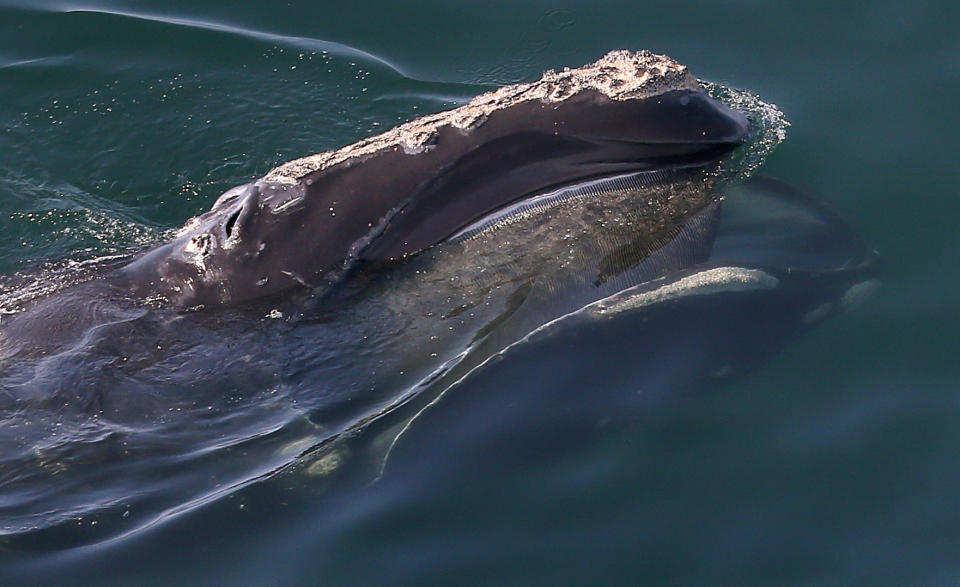
“The fact is that seismic blasting and the drilling that follows represent a serious threat to the coast and oceans and the communities that depend on them,” Jasny said. “It makes no sense to risk these jobs-intensive industries, our beaches, our marine environment and our clean energy future for the sake of big oil profits.”
The approval follows President Donald Trump’s executive order in April to expand offshore energy drilling by rolling back the Obama administration’s rejection of the permits in January, part of an attempt to ban oil and gas drilling off the East Coast for at least five years.
Authorization of the permits will face a 30-day public comment period. If approved, Jasny predicts, the five companies could begin seismic surveying as early as this fall.
The fisheries service is part of the National Oceanic and Atmospheric Administration, which falls under Secretary Wilbur Ross’ Commerce Department.
If you’d like to comment on the permits, you can do so here.
Related...
Trump Signs Offshore Drilling Order A Day Ahead Of Climate March
California To Challenge Trump's Executive Order On Offshore Drilling
Donald Trump Is 'Honoring' The Outdoors With Policies To Ruin It
Also on HuffPost
Love HuffPost? Become a founding member of HuffPost Plus today.
Reduce use of all plastic products

“Someone might buy a new iPhone and say, well, since I recycled my old phone with Apple, I’m all good. But Apple doesn’t tell you just how little of that iPhone actually gets recycled,” said Adam Minter, author of Junkyard Planet: Travels in The Billion-Dollar Trash Trade. “People need to stop thinking of recycling as a ‘get-out-of-jail-free’ card. You haven’t actually done anything good for the environment. You’ve just done something less bad.” (More on that below.)
“If we really want to deal with the waste problem we’re facing, we need to think deeper about the nature of consumption itself,” Minter said.
Don't litter
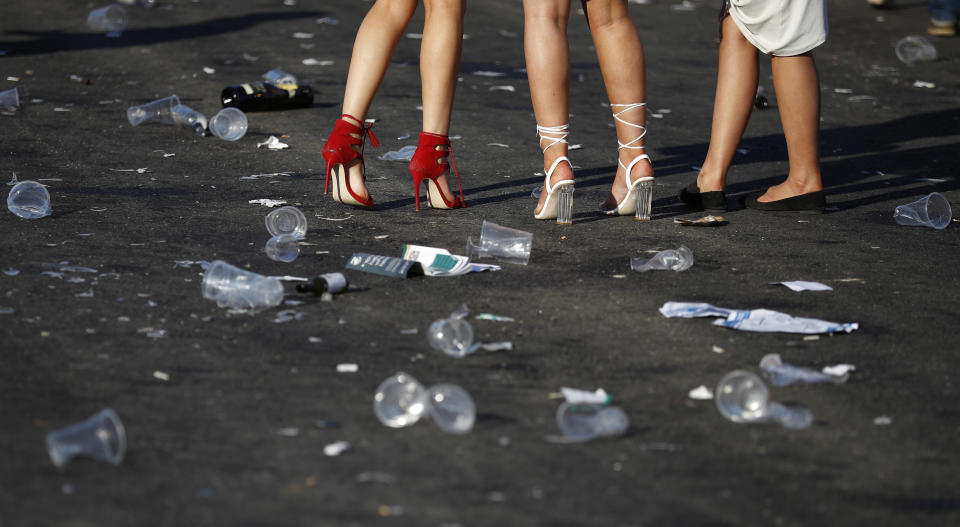
According to Jambeck, mismanaged waste like litter is the number one cause of plastic garbage is the world’s oceans. That plastic bag that got caught in a breeze could end up in a storm drain; that empty plastic bottle left on a beach could get carried out by a tide.
Ocean Conservancy recommends always “taking five” whenever you leave a space to ensure that you’ve collected all your trash and disposed of it properly.
Plastic bags, which often can’t be recycled (more below), are especially prone to becoming litter as they are easily carried away in the wind (yet another reason to not use them!). If you must throw one away though, be sure it’s balled up or weighed down so it can’t easily float away.
Recycle when you can, and do it right
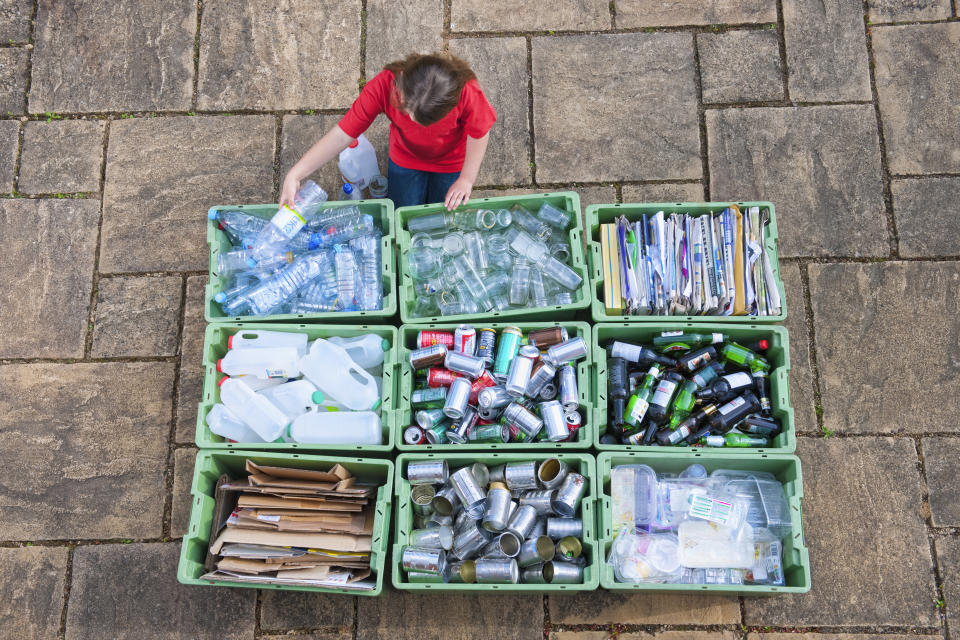
The reasons for these low numbers are manifold, said Darby Hoover, a waste management specialist with the Natural Resources Defence Council. But generally, it boils down to two major problems: one, there are many different kinds of plastics and not all of them are easily recycled; and two, consumers often aren't aware of these differences and therefore don't dispose of plastics in the best way.
“You know that little triangle on plastic products? The little triangle is not an indicator that something is recyclable. Instead, it’s merely a designation — numbered 1 to 7 — of what kind of plastic it is, what polymer that plastic is,” explained Hoover. A number 1, for instance, indicates that the item is made of Polyethylene terephthalate (or PET, for short), a material typically used to make bottles and microwaveable food containers; while a number 2 indicates high-density polyethylene, the stuff plastic grocery bags are usually made of. The most complicated designation is number 7 which indicates all other plastics, including products with a mixture of various plastics in them and also compostable plastics.
Recyclers use these numbers to determine which items can be recycled at their facility and which can’t. Different kinds of plastics typically can’t be recycled together, and many facilities won’t accept certain types of plastic at all, like styrofoam, vinyl and plastic film products like plastic bags and cling-wrap (these products have been known to gum up recycling equipment).
To add to the confusion, local municipalities across the U.S. have differing rules when it comes to recycling plastics. Some might accept type 7 plastics, for instance, but others will not.
“No matter where you live, you have to check the local municipality for their rules,” said Hoover, who recommended reviewing your local city or town website for more information. You also have to continue checking in, she added, as these rules often change without much warning.
Choose non-synthetic fabrics when possible
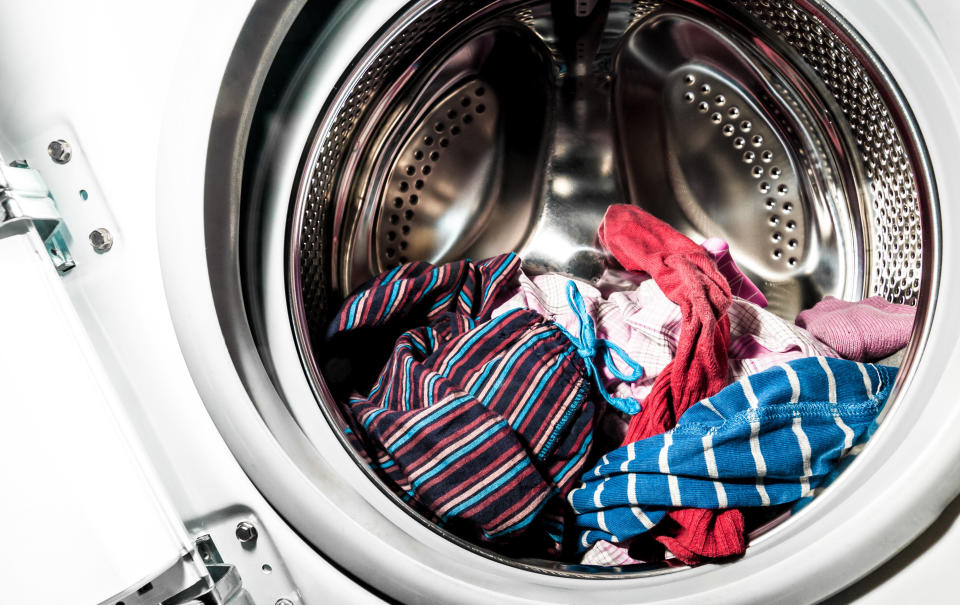
A single cycle of a washing machine could release more than 700,000 microplastic fibers into the environment, concluded one 2016 paper.
Natural fabrics to consider instead include organic cotton, wool, flax and hemp.
Say no to microbeads
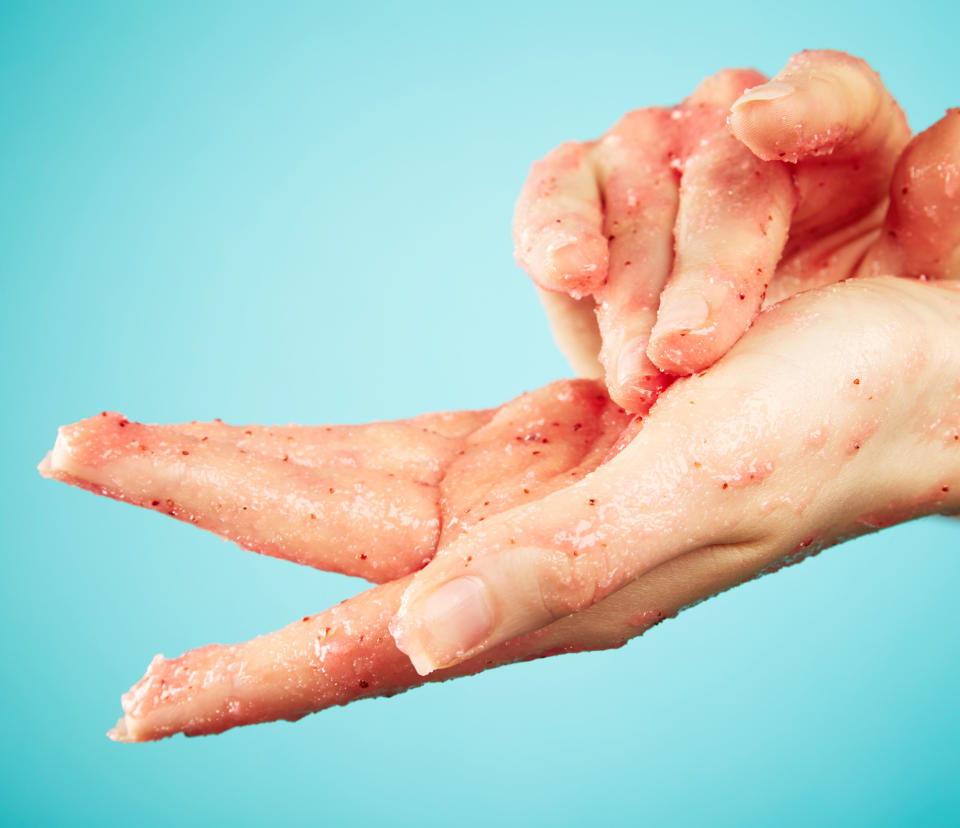
Recognizing the potential risk that microbeads pose to marine environments and possibly human health, several countries, including the U.S. and the U.K., have introduced bans of the substance.
Many of these bans have yet to be enforced, however, and some are limited in scope, so remain vigilant when purchasing products that could have microbeads in them (look out for terms like “exfoliator,” scrub,” “buff” and “polish”).
Visit the Beat the Microbead website to learn more.
Participate in clean-up efforts

In 2017, the cleanup event is planned for September 16 ― but you don’t have to wait till then to do something. Ocean Conservancy has a DIY toolkit to help you organize clean-ups in your own community.
Support plastic bag legislation

Reducing your use of plastic bags is one important way to mitigate this waste problem; but according to Jennie Romer, a New York City lawyer and founder of the website Plastic Bag Laws, another way to make a big impact is to support local, state and federal single-use bag legislation -- specifically legislation that supports the reduction of all kinds of single-use bags including plastic and paper.
Across the country, there are already many ordinances in place related to single-use bags. Last year, California became the first state to ban single-use plastic bags at all retail outlets, and in 2010, Washington D.C. implemented a 5-cent fee for all single-use bags, both plastic and paper. Cities and towns in Texas, Hawaii, Massachusetts and Colorado, among other states, have also embraced single-use bag legislation in some form or other.
For most of the nation, however, plastic and other single-use bags remain widely available. According to Romer, it’s extremely challenging to pass a plastic bag law — or even keep one in place (New York City is a prime example) — due to fierce opposition led mostly by lobbyists from the petroleum and plastic industry. “They fight bag regulations tooth and nail,” Romer said. “And their resources far outweigh that of the volunteers and grassroots community groups that are leading this fight.”
Preliminary evidence suggests that single-use bag legislation can be very effective in reducing waste. In Ireland, for instance, where a plastic bag tax was introduced in 2002, plastic bag use reportedly dropped by more than 90 percent in just a few weeks. In San Jose, California, a 2011 plastic bag ban resulted in a reduction of plastic litter by “approximately 89 percent in the storm drain system, 60 percent in the creeks and rivers, and 59 percent in City streets and neighborhoods,” according to a city report released almost a year after the ban was put in place.
Find out more about plastic bag legislation around the country and how you can get involved by visiting the Plastic Bag Laws website.
Support companies that are thinking of out-of-the-box solutions to reduce, reuse and recycle plastics
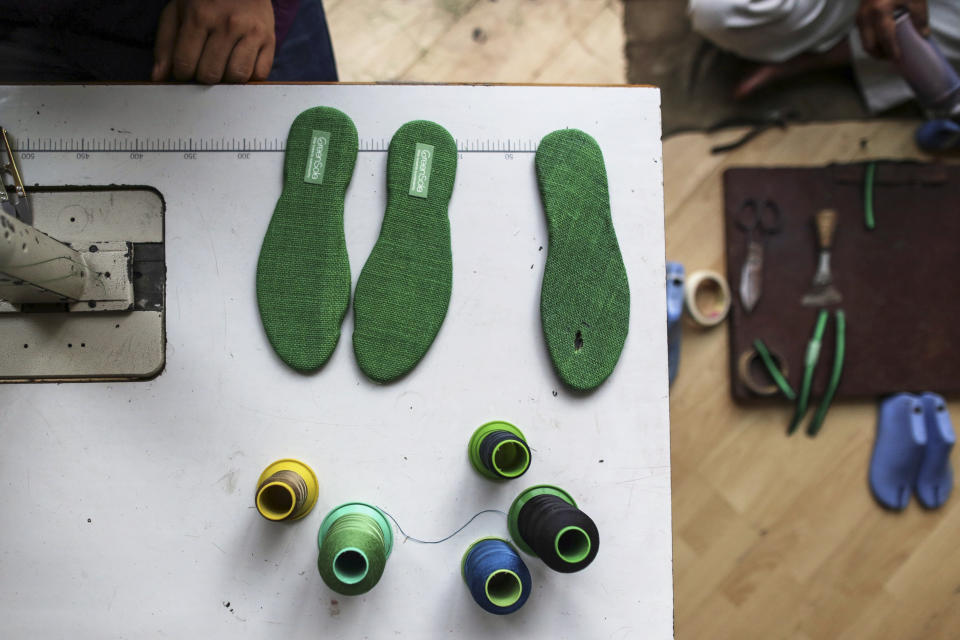
They might be rethinking product design, like this deodorant brand with its reusable, refillable containers; or incorporating recycled materials into their goods, like activewear companies that are turning plastic bottles into clothing or social enterprises like Greensole (pictured) that recycles old shoes into new ones.
There are also companies out there that are attempting to reduce waste across their entire value chain. Take Dell, which is recycling old computers into new ones as part of its closed-loop recycling supply chain. The company has also started harvesting ocean plastics to turn it into packaging material.
Consider also supporting green groups like 5Gyres, Ocean Conservancy and The Ocean Cleanup, which are leading the fight to clean up the world’s oceans.
Engage your family and friends

“This is a critical issue that’s tied up in so many other environmental concerns,” said Minter. “Yet people seem to have an aversion to it. They just don’t take much of an interest. Where’s the Paris landfill conference? You don’t see environmental groups flying celebrities into anywhere to talk about waste.”
The dialogue can begin in your own home and among your own friends. Start engaging your loved ones and your community on this important issue.
Track your progress
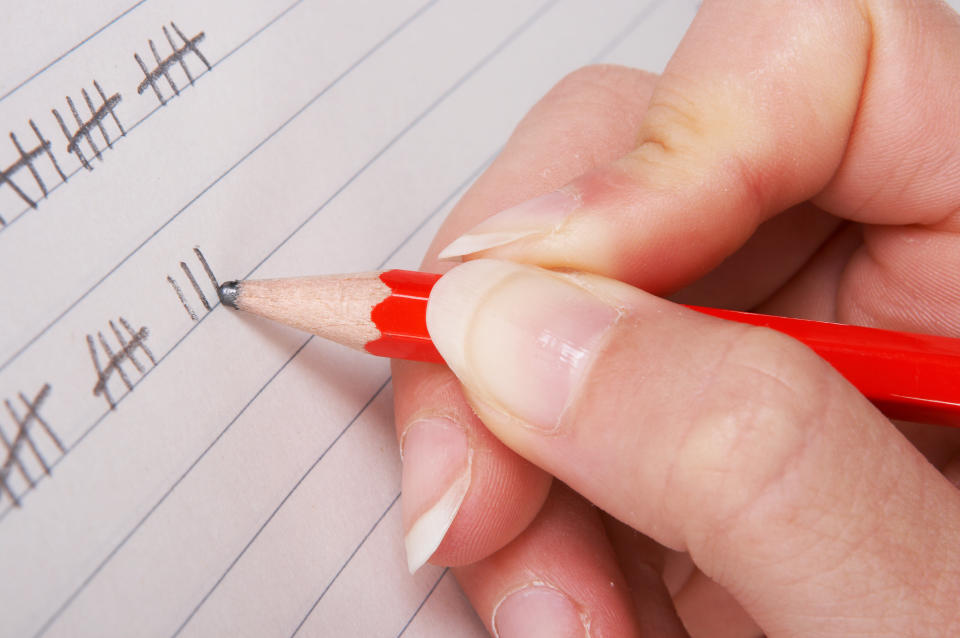
Ocean Conservancy also has a Clean Swell App which lets you track your beach cleanup efforts. It lets you share your progress on social media and to submit data directly into a global ocean trash database.
This article originally appeared on HuffPost.

